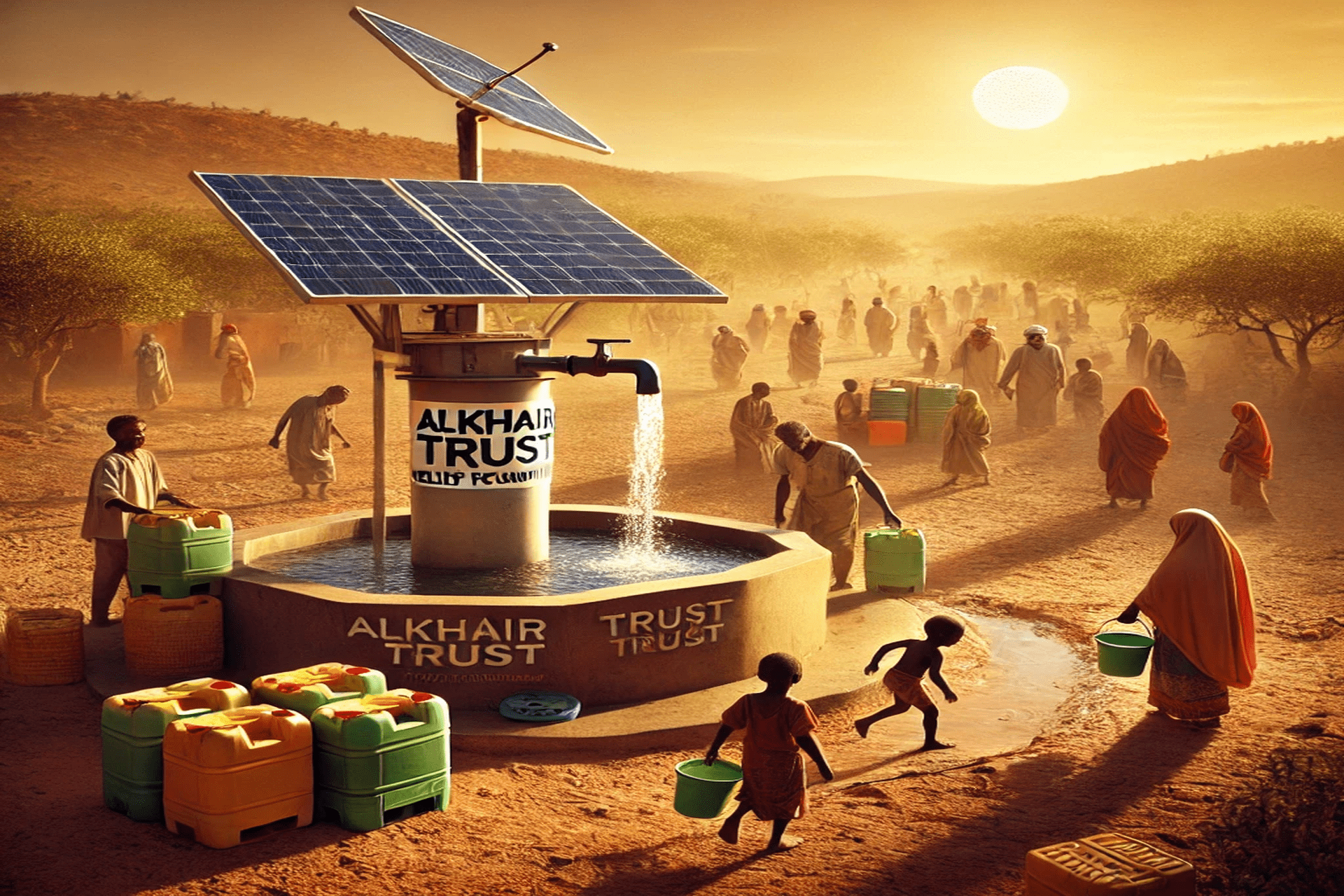
و عن سعد بن عبادة قال: يا رسول الله إن أم سعد ماتت، فأي الصدقة أفضل؟
قال:"الماء" فحفر بئراً وقال: هذه لأم سعد. رواه أبو داود والنسائي.
Hazrat Sa'd bin Ubadah (RA) came to the service of the Messenger of Allah (PBUH) and said, 'My mother has passed away. What is the best form of charity (Sadaqah) for her?' The Prophet (PBUH) replied, 'Water.' So, he had a well dug and said, 'This is for Sa'd's mother.
Providing access to clean drinking water from various sources to families affected by natural disasters, drought-stricken, and deserving families, especially residents of remote rural areas.

Boring Solar Water Scheme
The Boring Solar Water Scheme by Alkhair Trust Relief Foundation is bringing sustainable, solar-powered water solutions to the drought-prone regions of Sindh and Balochistan. By using solar energy to power deep borehole pumps, we’re providing clean and accessible water to communities in need, improving health, reducing the burden on families, and enabling children to focus on education. Join us in this life-changing initiative and help bring safe drinking water to those who need it most.

Handpump Initiative in Sindh and Balochistan
Alkhair Trust Relief Foundation is dedicated to bringing reliable water sources to underserved villages across Sindh and Balochistan by installing handpumps. In regions where access to clean water is limited, these handpumps serve as a lifeline, offering sustainable, safe drinking water to families and communities in need. By reducing the distance and effort required to fetch water, we’re enabling better health outcomes, reducing waterborne illnesses, and allowing children to focus more on their education and future.

Building Wells for Sustainable Water Solutions
Alkhair Trust Relief Foundation is committed to providing sustainable water solutions to underserved villages across Sindh and Balochistan by constructing water wells. In areas where access to clean water is scarce, these wells become essential lifelines, delivering safe drinking water to families and communities in need. By significantly reducing the distance and effort required to obtain water, we enhance health outcomes, mitigate the prevalence of waterborne diseases, and empower children to dedicate more time to their education and future aspirations.
